What is account abstraction?
Account abstraction turns your crypto wallets into smart contracts, allowing automated transactions, better security, and easier control without needing manual handling of private keys.
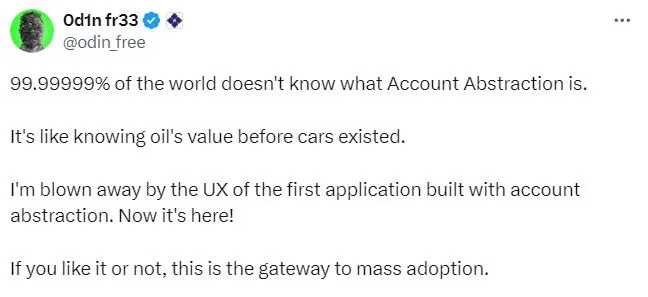
How does account abstraction work?
Here's a step-by-step breakdown:
- First interaction
- Smart contract wallet
- Rules and preferences
- Transaction creation
- Smart contract execution
- Transaction bundling
1. First interaction
You start by interacting with a blockchain-enabled platform (e.g., sending tokens, interacting with DeFi protocols) through a wallet interface.

2. Smart contract wallet
Then, instead of relying on an externally owned account (EOA) linked to a private key, account abstraction manages your account through a smart contract wallet.
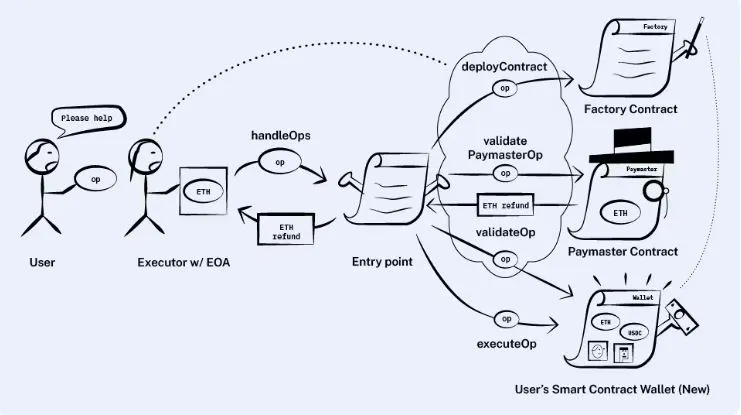
3. User rules and preferences
Within such a wallet, specific rules can be set, like:
- Transaction limits (e.g., only approve trades below a certain amount).
- Automated approvals for specific dApps or transaction types.
- Security preferences (i.e., multi-signature requirements or time locks).
- Recovery mechanisms (e.g., trusted addresses that can help recover access if you lose your key).
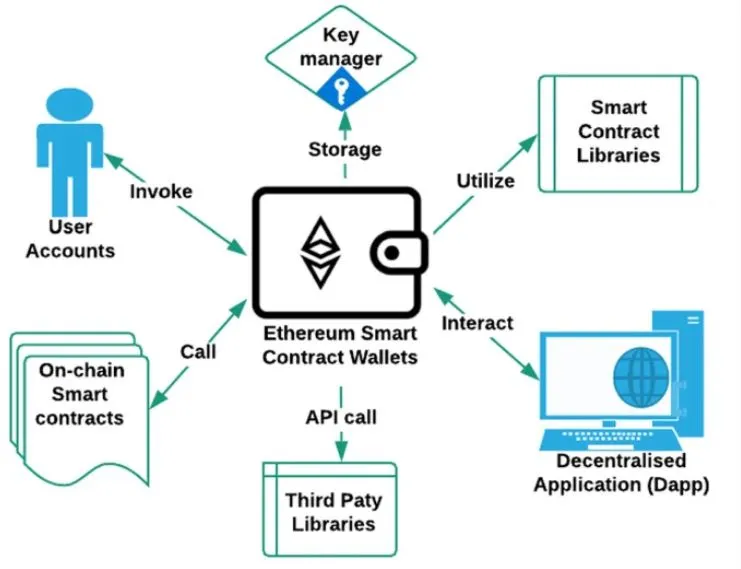
4. Transaction creation
When you initiate a transaction, the wallet sends your intent to the smart contract wallet, which manages the transaction before broadcasting it to the blockchain.
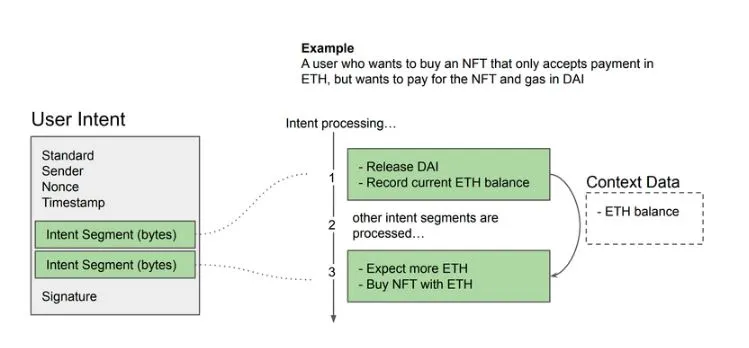
5. Smart contract execution
The smart contract wallet checks if the transaction adheres to these rules and preferences and rejects any transaction that doesn’t meet this condition.

6. Transaction bundling
Hence, you can combine multiple actions, like sending tokens or using dApps, into one transaction, which smart contracts process together.
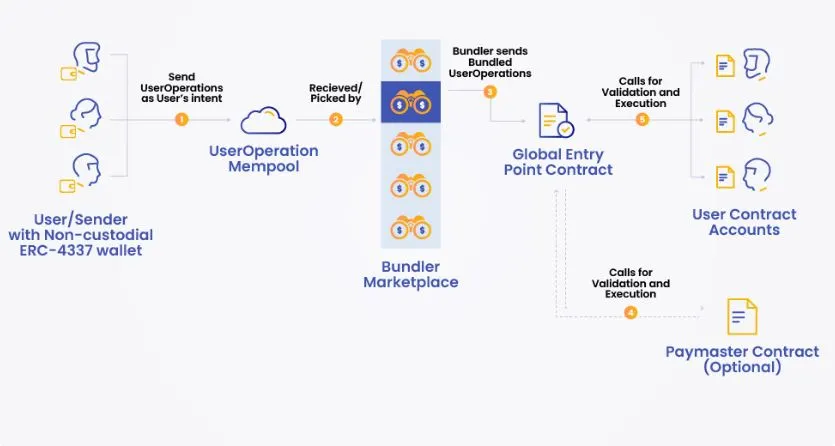
What are the benefits of account abstraction?
The benefits of account abstraction are:
- Better security
- Easier wallet use
- Works across different blockchains
- Automatic transactions
- Cheaper fees
- Customizable options
- Improved recovery
1. Better security
With account abstraction, losing your private key isn’t a disaster.

You can add custom security measures, like requiring multiple approvals for transactions, and set recovery options to easily regain access.
💡 Gnosis Safe offers extra security with multi-signature approvals, but its complex interface can be overwhelming for everyday use.
2. Easier wallet use
Even if losing your private keys wasn’t a big concern, handling them for every transaction surely is, but with account abstraction, that entire process is automated.
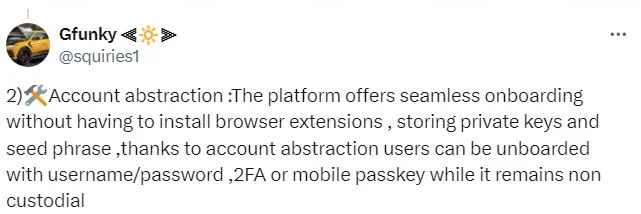
You don’t need to manually approve or sign off on every action—you just set your preferences, and smart contracts handle the rest.
💡 Argent is a wallet offering private key management and recovery without seed phrases, but it’s limited to Ethereum.
3. Works across different blockchains
Normally, you’d need separate wallets or accounts for Ethereum, Binance, and other blockchains, which is a pain to manage.

With account abstraction, you can interact with different blockchains from **one wallet (run by smart contracts)**.
💡 MetaMask offers a way to interact with multiple blockchains, but you have to use cross-chain bridges to move your assets between blockchains.
4. Automatic transactions
Account abstraction also enables you to set up rules for transactions to happen automatically.
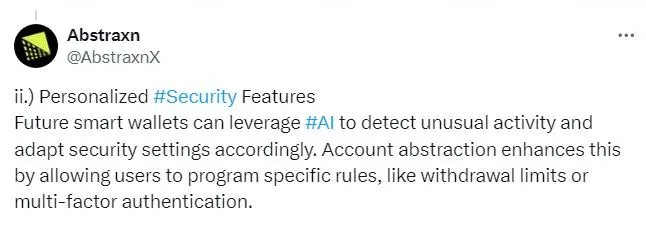
For instance, you can program your wallet to sell a token when its price hits a certain target, and the smart contract will handle it for you.
💡 Yearn Finance moves your funds to the highest-yield farming opportunities, but doesn’t cover broader transaction types, like automating trades or interacting with different DeFi protocols.
5. Cheaper fees
Furthermore, account abstraction can save you money by batching multiple transactions into one.
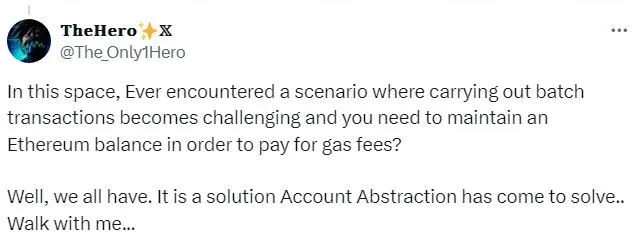
So instead of paying gas fees for each action, you only pay once for the bundled operation.
💡 ZkSync uses layer-2 rollups to cut Ethereum gas fees, but it only works on Ethereum, so you’ll need separate wallets for other blockchains.
6. Customizable options
With account abstraction, you can fully customize how your wallet works.
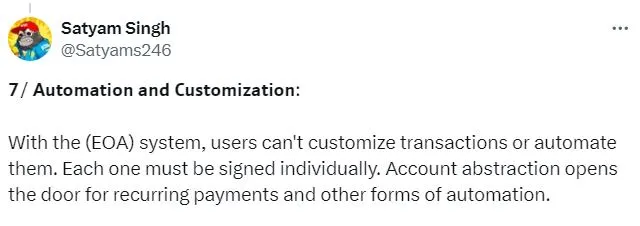
You can set up automated trades or decide how gas fees are managed.
💡 SafePal lets you customize transactions and supports hardware wallets for extra security, but it lacks built-in smart contract automation.
7. Improved recovery
One of the best features of account abstraction is its recovery options.

You can set up trusted contacts or use other recovery mechanisms to safely regain control of your account, unlike traditional wallets.
💡 ZenGo replaces seed phrases with facial recognition; however, its recovery system is centralized.
Final thoughts
"The next billion users won’t write 12 words on a paper,” Yoav Weiss, Ethereum Foundation Researcher
When it comes to account abstraction, each platform has strengths but also drawbacks.
Its just that only MC² Finance combines all these strengths: cross-chain compatibility, automated transactions, multi-signature security, flexible recovery options, and lower gas fees.
So what are you waiting for…
see how optimized your wallet truly is!
